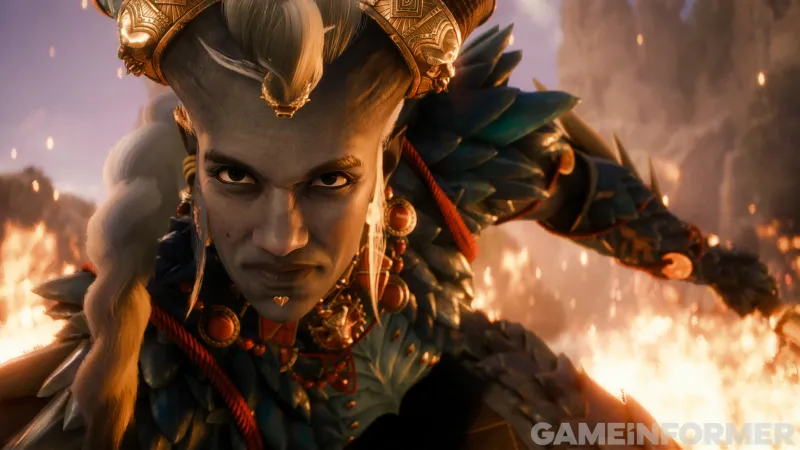7 Best Guard Dog Breeds For Elderly Owners

WorldAnimalFoundation.org is reader-supported. When you buy through links on our site, we may earn an affiliate commission. Learn More
Dogs make incredible companions for people of all ages, but they hold a special place in the hearts of those in their golden years. Beyond the joy and friendship they offer, dogs can significantly enhance a senior’s physical health and mental well-being.
Studies have shown that having a pet can provide vital social and emotional support, reducing feelings of distress and loneliness while boosting overall quality of life. For elderly individuals living alone, a guard dog not only brings safety and peace of mind but also becomes a loyal and loving companion.
Guard dogs are known for their loyalty, friendliness, and protective instincts. When choosing a guard dog breed, it’s essential to consider the unique characteristics each breed possesses. Seniors often benefit from dogs that require low maintenance and offer gentle companionship. It’s important to remember that owning a guard dog is a serious commitment that demands thoughtful consideration, regardless of age.
So, with a heart full of love and a desire for security, we present the top 7 guard dogs that are perfect for elderly individuals. These breeds offer the perfect blend of protection, companionship, and ease of care to help make the best choice for a safe and happy life together.
Guard Dog Breeds For Elderly Owners
1. Beagle
The Beagle is a small to medium-sized hound known for its friendly nature, keen sense of smell, and easy going temperament, making it an excellent choice for elderly individuals seeking a guard dog. This determined breed is gentle and even-tempered, making Beagles great as both family pets and watchdogs.
While your Beagle will alert you to someone approaching the door with its loud bark, it’s likely to quickly make friends with any visitor once they enter your home. Beagles are outgoing and sociable dogs. However, they do not do well when left alone for long periods. An isolated Beagle can become destructive or bored, and a bored Beagle often means a noisy Beagle.
ASPCA notes that Beagles are eager to please and highly motivated by food, which helps with basic obedience training. They are known for their stubborn streak and can be easily distracted, so patience is needed during training sessions. Their thick coat requires weekly brushing, especially during heavy shedding periods, but is generally easy to maintain.
An athletic and energetic breed, Beagles need plenty of exercise to stay happy and healthy. They are prone to overeating, so regular physical activity helps prevent weight issues. Beagles are happiest when they have space to roam in a securely fenced backyard or when they are taken on regular walks.
2. Pembroke Welsh Corgi

The lively Pembroke Welsh Corgi is an excellent choice for more active seniors who love outdoor adventures like walking on nature trails. With their short legs and bright eyes, Corgis charm people of all ages, including seniors. These sociable dogs thrive on being involved in every activity, and their energetic, fun-loving nature makes them a delight to have around.
Corgis are not just affectionate but also very protective. They are devoted to their families and make excellent watchdogs, barking to alert you of any trespassers. Their instincts as protectors come from their history of herding cattle and guarding farm animals, so they take their role as household guardians very seriously.
WebMD notes that Corgis are highly intelligent and respond well to positive reinforcement during training. They are eager to please and enjoy being around people. Their double coat is easy to brush or comb, but it does shed heavily, so regular grooming is necessary to keep your home fur-free.

This agile breed needs multiple daily walks to stay healthy and happy. Corgis also enjoy activities that involve completing tasks, so they love dog toys and other forms of mental stimulation.
3. Poodle

For seniors looking for an easy-to-train dog, the highly intelligent Poodle is an excellent choice. This versatile breed comes in three sizes—Toy, Miniature, and Standard—so there’s a Poodle to fit any lifestyle.
Poodles are loyal companions who form strong bonds with their families, thriving especially well with couples. They might not look like typical guard dogs, but their intelligence, alertness, loyalty, and protective nature make them effective in this role. Poodles are adaptable, vocal, and vigilant, serving as great deterrents and early warning systems.
Known for their fun sense of humor, Poodles love being pampered. They are incredibly clever, ranking as the second smartest dog breed, and they are quick learners. Poodles are eager to please, polite, and well-behaved, making them highly trainable. Plus, they are low-shedding and hypoallergenic, though their long, stylish hair requires regular brushing and professional grooming every month.
Despite their elegant appearance, Poodles are essentially hunting dogs at heart and need exercise and training to thrive as companion dogs. Whether it’s swimming or taking long walks, Poodles excel with plenty of physical activity.
4. Pomeranian

Originally made popular by Queen Victoria, the Pomeranian is a confident and lively breed that still carries its royal charm. Pomeranians are playful and curious, making them perfect companions for seniors who want both a friend and a little guard dog. These devoted dogs are always on alert, barking when someone approaches the home or when other animals wander through the yard, making them excellent watchdogs.
Despite their small size, Pomeranians have big, extroverted personalities. They are intelligent but can be stubborn, so a firm and consistent approach to training is necessary. But don’t worry; these tiny dogs are surprisingly trainable and enjoy working closely with their owners.
Despite their gentle and affectionate natures and surprisingly enthusiastic attitude to life, Pomeranians are delicate and require careful handling due to their small size. Under all that fluffy hair, they are quite fragile and need to be treated with extra care.
Pomeranians have a thick, fluffy coat with a dense undercoat. They need daily brushing to keep their fur from matting and to stay healthy, with a thorough grooming session twice a week. In terms of exercise, Pomeranians are quite low-maintenance. They are content with short daily walks or a playful run in the garden with their owners.
5. Pug

Pugs are perfect companions for seniors who love to relax on the couch with a furry friend by their side. These dogs spend most of their time lounging and playing indoors. Due to their flat faces and small nostrils, Pugs can have difficulty breathing in extreme heat or cold.
Pugs are incredibly loving and loyal, devoted to their owners. According to Orvis, Pugs are known to be very protective of their home, food, and people. They are always alert, keeping an ear out for anyone approaching and barking to let you know when someone is at the door. Once guests are inside, Pugs warmly welcome them as part of the family.
They enjoy taking naps, often snoring as they sleep. While they can sometimes get jealous or upset if ignored, they are generally easygoing and eager to please. Pugs are intelligent and can be trained, though they may be a bit stubborn and learn at their own pace. Keeping training sessions short and rewarding them with praise and treats works best.
With their short coats, Pugs are easy to groom, needing only occasional brushing. However, they do shed a lot and have facial folds near their eyes that require regular cleaning. Pugs are content with brief walks and short play sessions, whether indoors or outdoors.
6. Miniature Schnauzers

The charming Miniature Schnauzer makes an exceptional companion for senior pet parents, offering loyalty and dedication. These dogs are patient with children and love to play, making them great companions for visiting grandchildren. With a strong, outgoing, and friendly personality, Miniature Schnauzers bring joy and energy to any household.

Loyal and alert, Mini Schnauzers are always on watchdog duty. Bred to hunt rats, they have an acute sense of hearing and will bark at the slightest noise, whether it’s a stranger, a passing vehicle, or another animal. Britannica points out that while they are fearless and brave, they are more likely to bark at an intruder than to bite. Once you welcome guests into your home, Mini Schnauzers quickly relax and warm up to them.
These intelligent dogs are obedient and quick learners, though they have a streak of stubbornness and love to assert their independence. Despite this, they enjoy learning new things and thrive in training sessions. Miniature Schnauzers are a low-shedding, hypoallergenic breed with a double coat that requires regular brushing and professional grooming to stay in top shape.
This active breed needs daily exercise and loves spending time with its owners. Games of fetch in the yard or longer walks are perfect activities for keeping a Mini Schnauzer happy and healthy.
7. Yorkshire Terrier (Yorkie)

Yorkshire Terriers, or Yorkies, are lively, self-assured little dogs that make excellent companions for elderly individuals living alone. These boisterous and brave pups have a playful spirit, always ready for fun but equally happy to spend time cuddling on the couch. Yorkies are highly protective of their families and territory, barking loudly to alert you to any visitors.
Eager to please, Yorkies learn quickly, although they can be slow to housetrain like many toy breeds. Their long, silky coat grows continuously, similar to human hair, which means they don’t shed as much as other breeds but require significant grooming. Daily brushing is necessary to prevent matting and keep their fur looking its best.
Moderately energetic, Yorkies need a few walks per day and some playtime to stay healthy. According to PetPlan, adequate exercise helps them burn off energy, reduce territorial behavior, and prevent excessive barking, which are common issues in this breed.
Conclusion
When it comes to finding the best dog breeds for seniors, there are many wonderful options. Whether you prefer small dogs like the Cavalier King Charles Spaniel, Shih Tzu, French Bulldog, or Bichon Frise, or a large dog, there’s a perfect companion out there for everyone.
The best dogs for seniors include those that are easy to train, affectionate, and protective. Mature dogs, especially senior dogs, can provide unmatched companionship and joy. For active seniors, high-energy dogs are a great match, while those looking for a more relaxed pet might prefer the smallest dog breeds.
Remember, dog ownership is a rewarding experience, and choosing the best dog for your lifestyle can bring years of happiness and fulfillment.








